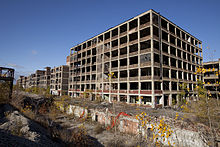After New York City’s close call with bankruptcy in 1975. the state required the city to balance its budget in accordance with generally accepted accounting principles rather than continuing to use “creative-accounting practices.” According to Richard Ravitch, writing in the Wall Street Journal last week, the city has not had a fiscal crisis since.
The city’s new mayor, Bill de Blasio, released his first budget last week, beginning the slippery slide back into questionable accounting: Many are questioning whether the deferral of payments contractually due city employees was properly accounted for.
Ravitch’s article describes exactly what most California cities are doing: using deceptive cash-basis accounting to hide real costs and liabilities.
Sacramento, where I live, is the poster child for how to end up becoming Detroit, which filed the country’s largest municipal bankruptcy last July, after amassing $18 billion in liabilities it could not afford to pay.
What is disturbing in Sacramento, is the published deficit and surplus numbers put out by Sacramento City Manager John Shirey, appear to be simply deceitful:
- The city’s supposed $2 million General Fund surplus next year will actually be a $29 million general fund deficit.
- The city’s projected $41 million General Fund deficit in 2019 will actually be a $72 million General Fund deficit.
- But with the arena deal now approved, with its $15.4 million annual shortfall, the 2019 General Fund deficit will be pushed up to over $87 million – for a city with a $370 million annual General Fund budget, a 24 percent real budget deficit.
Ravitch said contributions to employee pension funds are often well below the levels needed to ensure the payment of the benefits that are contractually or constitutionally guaranteed, let alone those that past trustees and legislatures added on a discretionary basis.
Sacramento is accruing, off the books, $29 million in annual retiree health care costs, but puts only $1 million annually into a trust to cover such costs.
Los Angeles 2020
Sacramento is not alone. “Los Angeles is barely treading water while the rest of the world is moving forward,” the Los Angeles 2020 Commission reported in December. “We risk falling further behind in adapting to the realities of the 21st century and becoming a City in decline.”
Despite the important findings, everyone knows this report on Los Angeles will be relegated to a back shelf in an office at City Hall to gather dust.
“Los Angeles is sinking into a future in which it no longer can provide the public services to which our people’s taxes entitle them and where the promises made to public employees about a decent and secure retirement simply cannot be kept. City revenues are in long-term stagnation and expenses are climbing.”
Promising pension funds
Sacramento took a different tactic, rather than sincerely looking into the exorbitant promises made to public employees.
The city loudly brags that, for the first time, it is funding a reserve for annual retiree health care costs. However, contributing at $1 million per year to the $29 million in annual retiree health care costs, Sacramento will never get control of its rapidly growing $470 million liability for retiree health care costs.
“But the most critical piece of the states’ fiscal dilemma is that they are borrowing to cover their operating deficits,” Ravitch warns in the WSJ op-ed. “They do this directly—by issuing debt securities—but also indirectly. Some states, like New York, make contributions to their pension systems in promissory notes rather than cash. States and cities also sell assets and treat the proceeds as operating revenues, in effect selling off the family silver to stay afloat.”
Does any of this sound familiar? Absolutely, it does.
Sacramento’s shady arena financing
Consider how city officials in Sacramento have done everything they can to force a publicly subsided NBA arena on the city’s taxpayers. According to Craig Powell, President of Eye on Sacramento, a public policy watchdog, “Basic notions of democracy and democratic processes fundamentally failed in Sacramento during consideration of the arena project. Through a combination of unsound judicial decisions and a city government bent on exploiting every possible loophole to avoid a public vote and public accountability, the voters of Sacramento are being denied their rights under the California constitution to vote on Sacramento’s issuance of $300 million of bonds to fund the arena project.”
Following depositions of key city officials and witnesses in a lawsuit alleging that high-level city officials defrauded the public when they crafted the arena’s “Term Sheet” that will hand over millions of dollars in public assets to the Sacramento Kings ownership team, According to Attorneys Patrick Soluri and Jeff Anderson, Councilmember Kevin McCarty and Economic Director Jim Rinehart confirmed that public assets were used to subsidize the purchase of the Sacramento Kings Basketball team in 2013, constituting an illegal gift of public funds.
McCarty testified that multiple representatives of the Kings Ownership group demanded that the city compensate the so-called “whale” investors by $125 million because they were “overpaying” for the franchise.
Rinehart said the city of Sacramento has never conducted its own analysis of the economic benefits of a downtown arena. Rinehart also confirmed that the city has never made an attempt to place a value on the digital billboard leases that are being gifted to the Kings Ownership group. Councilmember McCarty and an independent watchdog organization valued those and other “sweetener” assets at “tens of millions of dollars.”
State and municipal fiscal crises are plain, according to Ravitch: “We are drastically underinvesting in physical infrastructure—roads, bridges, ports, etc.” Permitting states and municipalities to continue these practices, has already begun to result in harmful service cuts and a failure to fund promises made to creditors, public employees and the beneficiaries of essential public services, without minimal levels of financial support. What this means is we can expect to see more Detroits.


